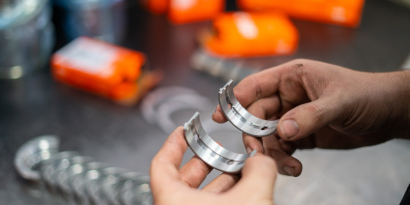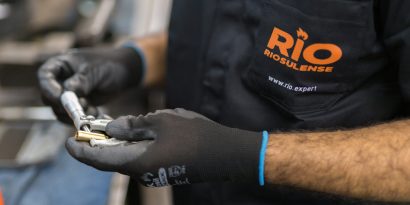Those who follow us on the blog already know that bearings are essential for the efficiency of any engine, acting as critical friction points during vehicle operation. Indeed, they are so important that any defects or errors during application can compromise the car performance in the long term. That is why it is essential to understand the common causes of bearing failures and, of course, how to fix them.
With that in mind, in today’s article, let’s dive into the technical and practical aspects of the diagnosis of these parts to unveil the main causes behind bearing failures, providing a detailed view and valuable guidance to the Expert who wishes to solve these critical issues, provide a quality service, and ensure customer satisfaction. Come with us and have a good reading!
4 common causes of bearing failures
You already know that the main bearing function is to support and reduce the friction between a mobile part and a static part of the engine, right? That is, when these components stop working, these parts start to rub each other, which can cause deformities, breaks, and overheating.
So, before everything gets out of control, it is important to pay attention to early signs of bearing failures in order to identify the potential causes. These include:
1 – Insufficient endplay
Maybe one of the most common causes, bearing failure due to insufficient endplay is characterized by an excessive wear of flange side and in internal surface areas – especially in points where anti-friction alloy detachment is visible.
This is a condition that usually manifests as a result of inappropriate assembly, which forces the crankshaft against the bearing flange, preventing the appropriate formation of oil film and increasing the temperature to the melting point of alloy components.
To avoid this issue, it is essential to carefully follow the manufacturer assembly specifications and ensure that all components are correctly aligned and installed.
2 – Presence of solid impurities
Solid impurities in the oil, such as dust, dirt, and metal particles, can also become encrusted in the bearing, causing displacement of anti-friction alloy and scratches on the surface. These particles act as abrasives under operating pressure, breaking the oil film and creating conditions for direct friction between the axle and bearing, which accelerates wear.
In these cases, thorough engine cleaning and regular oil and filter change are some of the good practices that the Expert can put into practice to maintain the purity of the lubricant system and avoid this type of issue.
3 – Insufficient abutment height
When the abutment height is lower than required, the contact between bearing and bearing housing is not sufficient to ensure the appropriate part retention, leading to excessive axial movements that may cause frictional wear.
This also hinders heat transfer, increasing the risk of overheating. Here, the correction involves a careful inspection of contact surfaces and screw tightness adjustment in order to ensure the required radial pressure to maintain the bearing in its place.
4 – Excessive abutment height
On the other hand, an excessive abutment height can cause bearing buckling near the parting line, since the part is prominent and is forced against the housing during screw tightening, resulting in excessive deformation and wear.
To correct that, it should be ensured that the mounting surfaces are free from inaccurate machining and that screws are tightened with the recommended torque, so that the bearing settles perfectly with no excessive radial compression.
It is worth noting that each of these conditions requires a careful approach both in diagnosis and correction in order to ensure that bearings work efficiently and extend the engine life – in addition to a series of precautions when choosing your spare parts.
That is where RIO enters the scene to help your shop!
Those who are real Experts know that the selection of high-quality components is essential to avoid bearing failures and ensure the efficiency of services provided in the shop everyday life. And RIO understands this need better than anyone and, therefore, offers a full line of bearings that not only fulfill, but overcome the quality and performance expectations.
With the guarantee of origin, our bearings provide the required trust so that mechanics can perform long-lasting and effective repairs. After all, investing in RIO quality is a guarantee of protection against frequent problems, ensuring that engines maintain their optimized performance with minimum return due to bearing failures!
Do you want to know more? Visit our website, know our portfolio and count on RIO to create movement!





